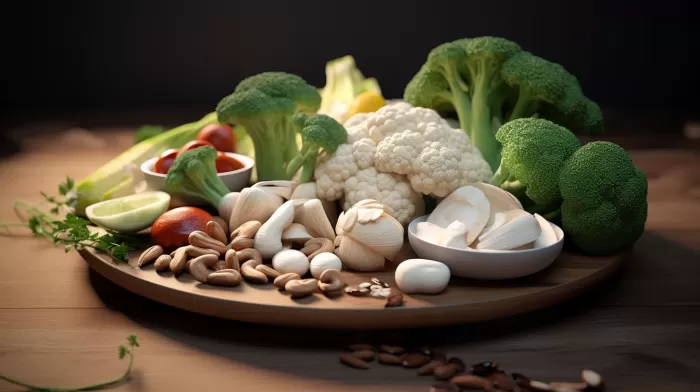Since we were children, we’ve all been told to drink milk and eat dairy products to ensure we build strong healthy bones. That’s because millions of people worldwide are affected by osteoporosis — a disease of weak bones that leads to an increased risk of falls and fractures. But what if you’re lactose intolerant, follow a vegan diet, or simply don’t care for dairy? Turn to dietary sources of non-dairy calcium.
In truth, you don’t need to eat dairy for strong bones. In fact, dairy isn’t as good for our health as it’s been made out to be. When it comes to bone mass, studies looking at meat eaters, vegans, or vegetarians show there is no difference between them. You’d be surprised to learn that some non-dairy sources provide twice as much calcium as dairy!
How much calcium do you need per day?
The daily calcium recommendations are as follows:
- Ages 14-18 years: 1300 mg
- Ages 19-50 years: 1000 mg
- Ages 51-70 years: Men 1000 mg, Women 1200 mg
- Ages 71+ years: 1200 mg
For both males and females, the calcium recommendations are the same throughout life, except during the 51-70 year age bracket. At around 50, women’s estrogen levels drop, causing a higher rate of bone turnover. This leads to an estimated 10 percent loss of bone mass during the first five years of menopause. Therefore, it’s particularly important for women to pay attention to consuming the recommended calcium every single day.
The best sources of non-dairy calcium
One cup of cow’s milk has approximately 96 g of absorbable calcium. The same amount can be found in the following calcium-rich foods:
- Broccoli – 2 cups
- Chinese cabbage – ½ cup
- Calcium-fortified soy milk – 1.3 cups
- Calcium-set tofu – 5.4 oz
- White beans – 2 cups
Green leafy vegetables are also calcium-rich, providing around 60 percent absorbable calcium, while most dairy products only provide around 30 percent.
Green leafy vegetables (1-2 cups):
- Bok choy
- Collards
- Kale
- Mustard greens
Though calcium is a key nutrient in bone health, a wide range of other nutrients play vital roles as well — vitamin D, magnesium, protein, phosphorus, zinc, copper, manganese, vitamin C, vitamin B12, vitamin K, and potassium. That’s what makes the above calcium-rich foods so beneficial — they are jam-packed with nutrients that support higher calcium absorption and strong healthy bones.
Other non-dairy sources of calcium
Each of the calcium-rich foods listed below contains a calcium dose equivalent to 300 mg, which is approximately one-third to one-quarter of your daily requirements.
- Almonds – 1/3 cup
- Almond butter – 3-4 tablespoons
- Hazelnuts – 1/2 cup
- Dried figs – 7-10
- Navel oranges – 2
- Sesame seeds – 2/3 cup
- Sesame seed paste (tahini) – 5-6 tablespoons
- Chia seeds – 1/2 cup
- Seaweeds like nori, wakame, kombu – 1/2 cup
- Flaxseeds – 1 cup
- Brazil nuts – 1.5 cups
- Almond or rice milk – 1 cup
- All beans range from – 1-2 cups
- Sardines with bones – 3 oz
- Pink salmon with bones – 4 oz
Ideas to incorporate calcium-rich foods into your everyday routine:
- Include a side dish of greens at every meal.
- Eat a small handful of nuts daily, especially almonds.
- Add chia or flaxseeds to a smoothie with almond milk.
- Add seaweed to soups, casseroles, and stir-fries
- Eat sardines and salmon for lunch with a big green salad.
- Make a nut, flax, and chia seed cereal topped with figs, almond milk, and tahini.



